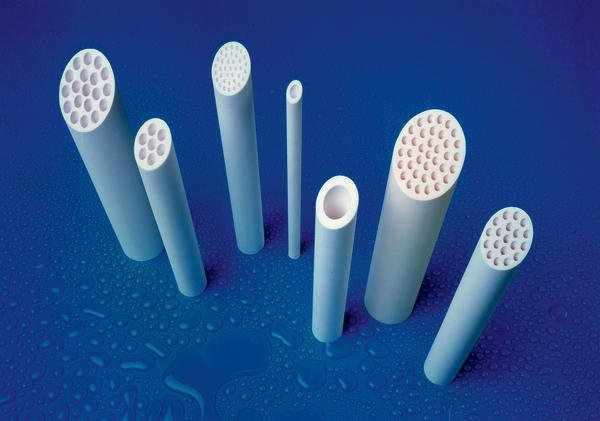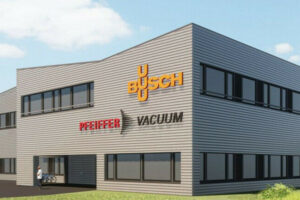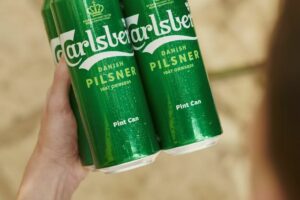High flux rates, combined with chemical and thermal resistance and the resulting operational reliability – these are the reasons why users worldwide opt for ceramic membranes. The only parameter where ceramic membranes traditionally perform well, though not optimally, is abrasion resistance. Duratech, the titanium oxide ceramic membrane, was developed for applications involving highly abrasive media. Thanks to an innovative coating process, Duratech boasts an abrasion resistance even higher than that of standard membranes.
Filtering abrasive matter using standard membranes requires various pre-treatment stages such as pre-filtration, centrifuging or sedimentation to protect the membrane. The reason why ceramic membranes (without binding agents) traditionally lose their screening ability tends to be abrasion, not corrosion. This damage to the membrane is due to the fact that the highly porous structure is only supported by small sinter necks between the particles of the membrane layer. Its abrasion resistance is therefore significantly lower than with a more densely structured layer.
Atech has succeeded in improving the abrasion resistance of membranes. The Duratech line is manufactured using an innovative coating process which is essentially based on controlled crystal growth. Stand-ardised scratch test measurements were performed on membrane surfaces under defined conditions. In a scratch test, a needle is drawn over a surface while the force acting vertically is steadily increased and the penetration depth is measured. Assuming an identical force, the needle penetrates a standard membrane approximately twice as deep as a Duratech membrane. Put another way, approximately twice as much force is needed to achieve the same penetration depth for a Duratech membrane. It is also true for Duratech membranes that as the pore size becomes smaller, the abrasion resistance is reduced, in other words if an identical force is applied, the penetration depth of the needle increases. Test filtration runs are currently being performed using model liquids containing highly abrasive components to determine the limits of abrasion resistance.
The improvement in abrasion resistance has already been demonstrated in long-term operation in an industrial membrane filter plant. A mixture which permanently contains a small amount of silica sand due to pollution was filtered using Duratech membranes (0.05 µm) and the results compared to filtration with standard membranes of identical pore size. After six months in continuous duty, the Duratech membrane was intact and had no scratches whatsoever, while the standard membrane had lost its active screening layer and the supporting structure on its surface had become visible. A particularly remarkable feature of the Duratech membrane is that its flux rates are altogether equivalent to those of standard membranes.
High-purity support material
The membrane supports are made of high-purity alpha-aluminium oxide. They are manufactured by extrusion and sintered at temperatures of up to 1800 °C. The filtration membrane is subsequently applied in layers, starting with the largest pores and continuing to the finest pores with a diameter of only a few nanometres. Depending on the application, the membranes can be supplied in alpha-aluminium oxide (standard membranes down to 0.1 µm) or titanium oxide (Duratech or standard membranes smaller than 0.1 µm). Compared to rival products, particularly polymer membranes, ceramic membranes stand out due to their high chemical, thermal and mechanical strength, ensuring a long service life.
The membranes are arranged in so-called modules, in which several supports are combined in stainless steel vessels, for installation in filtration plants. These pres-sure vessels are available in various steel qualities and designs tailor-made for each customer’s application. During cross-flow filtration by means of ceramic membranes, the medium to be filtered flows through the channels of the membrane support. All particles or molecules whose size exceeds the pore diameter of the membrane are retained. These particles or molecules build up in the concentrate. The filtrate permeates through the pores and – depending on the process – is treated in subsequent stages as required. In the field of waste water treatment and recycling, Duratech membranes are used, for example, to filter cleaning chemicals, for cell separation after biological processes or to recycle paints and lacquers. In chemical and biotechnical applications, ceramic membranes are employed for protein filtration, catalyst recovery or the filtration of photochemical developers.
cpp 429
Membranes
Duratech in detail
Share:







